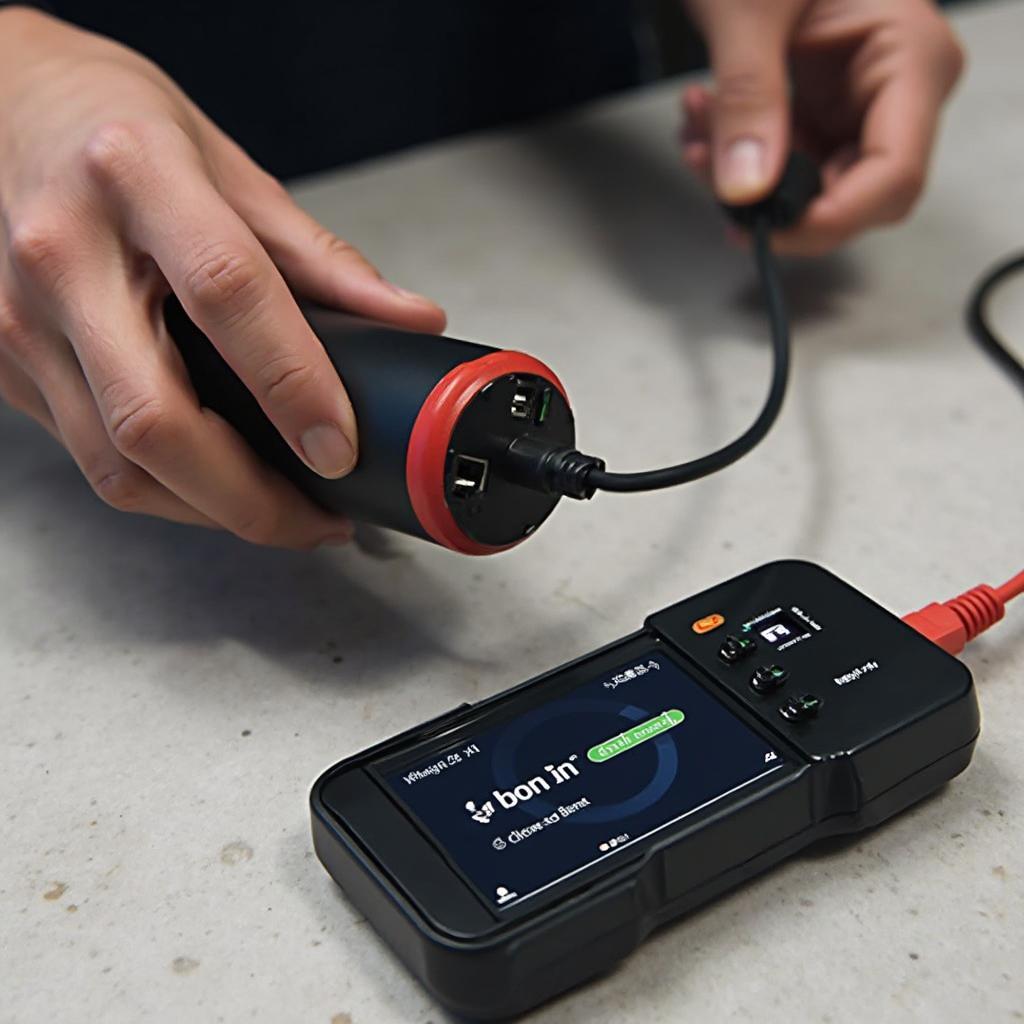Your cart is currently empty!

Li-ion Battery Care Tips: Maximize Lifespan and Performance
Li-ion Battery Care Tips are essential for getting the most out of your devices, from smartphones and laptops to electric vehicles. Proper care can significantly extend battery lifespan, maintain performance, and ensure safe operation. This article will provide you with the essential li-ion battery care tips you need.  Li-ion Battery Charging Tips
Li-ion Battery Charging Tips
Understanding Li-ion Battery Characteristics
Before diving into specific li-ion battery care tips, it’s important to understand some key characteristics of these powerhouses. Unlike older battery technologies, li-ion batteries don’t suffer from the “memory effect,” so you don’t need to fully discharge them before recharging. However, they are sensitive to extreme temperatures and deep discharges. rechargeable battery care tips offer valuable insights applicable to various rechargeable battery types.
Temperature Considerations
Extreme temperatures, both hot and cold, can negatively impact li-ion battery performance and lifespan. Avoid leaving your devices in direct sunlight or hot cars, especially during summer. Similarly, protect them from freezing temperatures during winter.
Avoiding Deep Discharges
While occasional deep discharges are acceptable, consistently allowing your li-ion battery to drain completely can shorten its lifespan. Aim to keep the charge level between 20% and 80% for optimal longevity.
Practical Li-ion Battery Care Tips
Now, let’s delve into the practical tips that will help you maximize the lifespan of your li-ion batteries:
-
Optimal Charging Practices: Avoid overcharging your devices. Once they reach 100%, unplug them. li ion battery care tips provide further guidance on charging best practices.
-
Partial Charging is Fine: Don’t worry about topping off your battery to 100% every time. Short, frequent charging sessions are perfectly acceptable and won’t harm the battery.
-
Temperature Management: As mentioned earlier, keep your devices in a moderate temperature range. Avoid exposing them to extreme heat or cold. Looking for more advice to extend your car battery’s life? Check out these tips to extend your car battery life.
-
Proper Storage: If you plan to store a device for an extended period, charge the battery to around 40-50% and store it in a cool, dry place.
-
Use the Original Charger: Whenever possible, use the manufacturer’s recommended charger. Using a charger with different voltage or amperage could damage the battery.
How Can I Tell if My Li-ion Battery is Damaged?
Signs of a damaged li-ion battery include swelling, overheating, rapid discharging, or the device failing to hold a charge. If you notice any of these issues, discontinue using the battery immediately and seek professional assistance.
“Proper battery care is often overlooked, but it’s crucial for getting the most out of your devices,” says John Smith, a leading battery technology expert at BatteryTech Solutions. “By following these simple li-ion battery care tips, you can significantly extend the lifespan and maintain the performance of your batteries.”
Conclusion
Following these li-ion battery care tips can significantly prolong the lifespan and performance of your devices. By understanding the characteristics of li-ion batteries and adopting good charging and storage practices, you can ensure your devices remain powered up for years to come. li po battery care tips offer additional insights into caring for another popular battery type.
FAQ
-
How often should I calibrate my li-ion battery? Calibration is generally not necessary for modern li-ion batteries.
-
Is it okay to leave my device plugged in overnight? While modern devices have safeguards against overcharging, it’s generally best to unplug your device once it reaches 100%.
-
Can I use fast charging all the time? While convenient, frequent fast charging can generate more heat, which could potentially degrade the battery over time.
-
How can I extend my laptop battery life? dell laptop battery care tips offer specific advice for Dell laptops, but many of the principles apply to other brands as well.
-
What should I do if my battery is swollen? Stop using the device immediately and contact the manufacturer or a qualified technician for assistance.
-
How can I dispose of my old li-ion battery? Li-ion batteries should be recycled properly. Check with your local waste management facility for appropriate disposal options.
-
Does using my device while charging harm the battery? It’s generally safe to use your device while charging, although it may charge more slowly.
Common Li-ion Battery Issues and Solutions
Over time, you might encounter some common issues with your li-ion batteries. Here’s a look at a few of them and their potential solutions:
- Battery draining quickly: This could be due to background apps, high screen brightness, or a failing battery. Try closing unused apps, lowering screen brightness, and updating your device’s software.
- Device not charging: Check the charger, cable, and charging port for any damage. Try a different charger or cable if possible.
- Battery overheating: Stop using the device and allow it to cool down. Avoid using the device in hot environments.
Further Resources
For more information on battery care and related topics, explore the following resources on our website:
- How to Choose the Right Battery for Your Device
- Understanding Battery Technology Advancements
- Troubleshooting Common Battery Problems
Need further assistance with your car battery or diagnostics? Contact us via WhatsApp: +1(641)206-8880, Email: [email protected] or visit us at 456 Pine Avenue, Toronto, ON M5V 2J4, Canada. Our customer support team is available 24/7 to assist you.

Leave a Reply